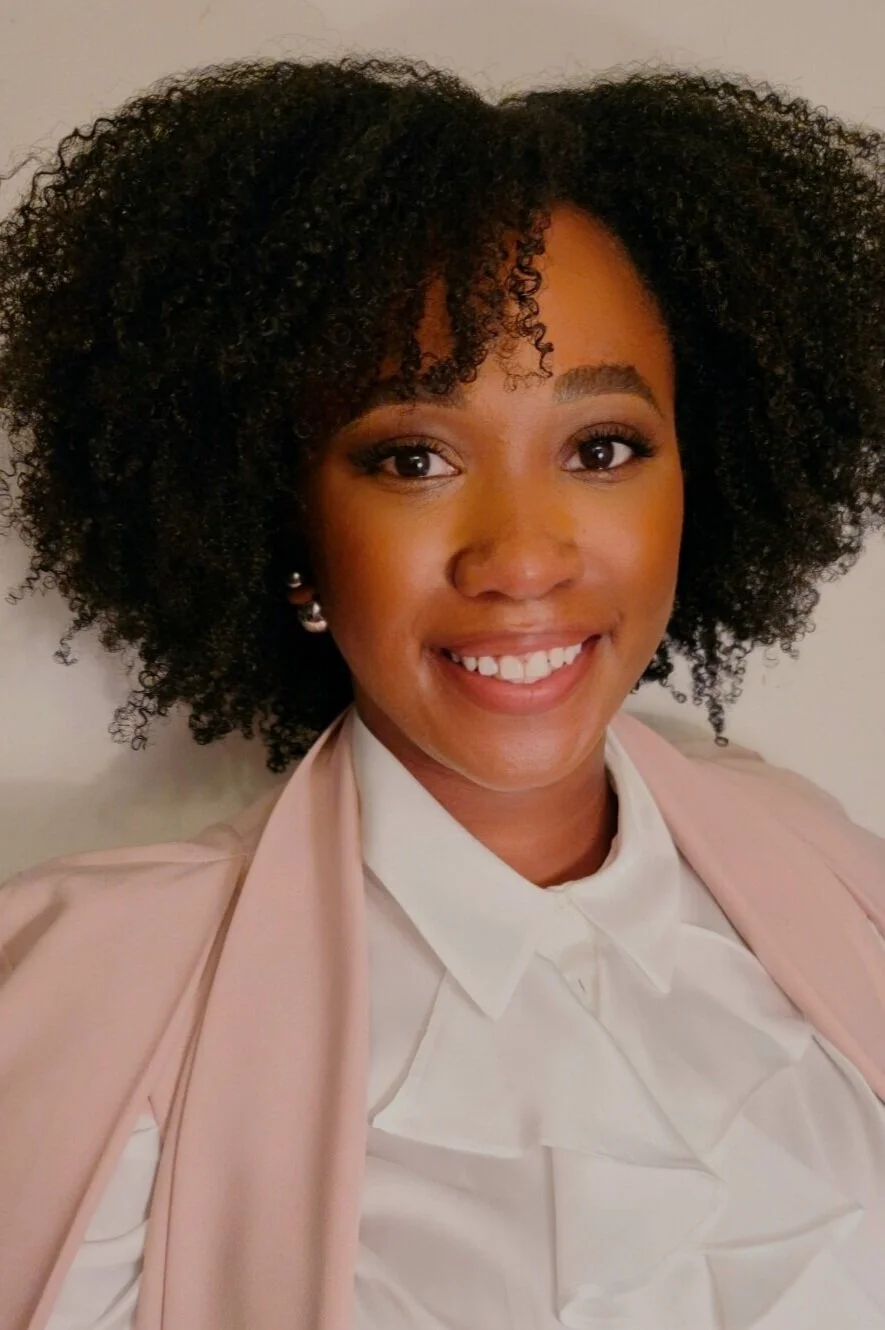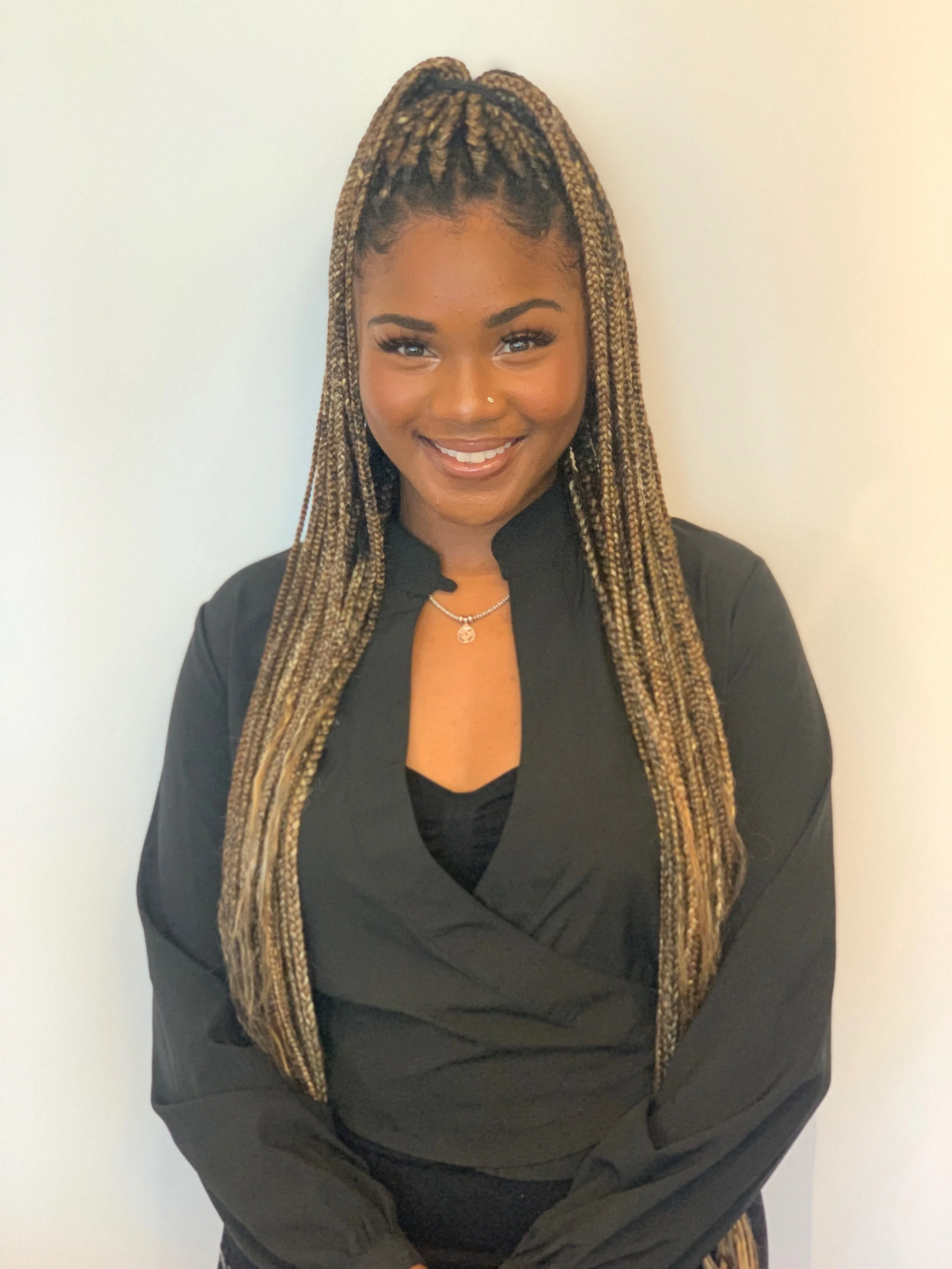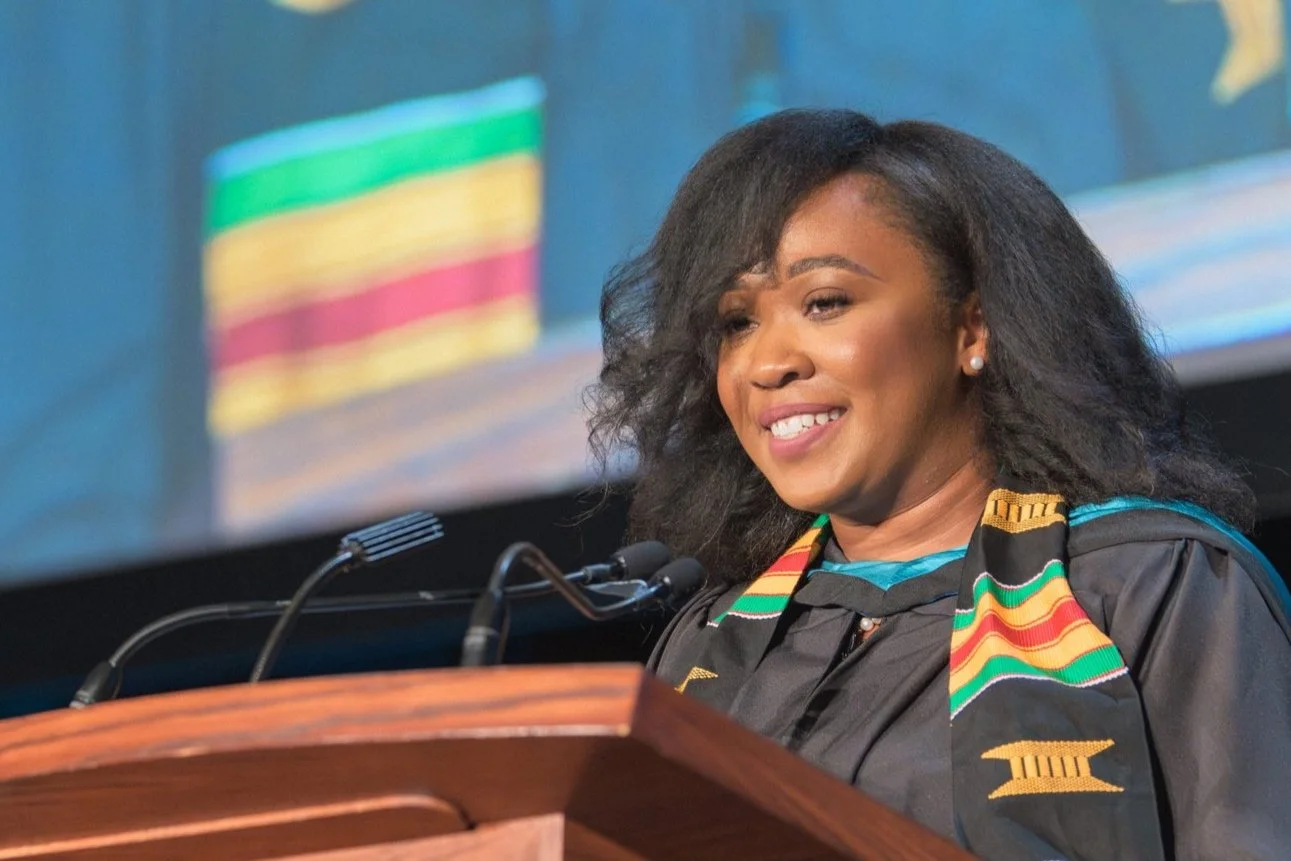Ryerson law faculty program designed to help legal profession reflect Canada's diversity
October 26, 2020
The seven-year wait to get to law school was worth it for Safia Thompson who aspires to be a judge and is in Ryerson University Faculty of Law inaugural cohort.
Unable to afford tuition and other compulsory fees after completing her undergraduate degree at York University, she worked in the beauty and creative industry, rising to operations manager with responsibility for implementing new company policies.
“That was what reignited my flame to want to pursue law again because I was able to see how some policies can affect people from low socio-economic and racialized backgrounds,” Thompson said. “Not been able to do anything about that really bothered me and I wasn’t feeling fulfilled any longer in that work space.”
Ryerson, Osgoode and the University of Ottawa were at the top of the list once she made the decision to go to law school.
Being part of something new and innovative and the hiring of a Black female dean and an assistant dean who is a woman of colour were the clinchers for Thompson who has an interest in health, employment and criminal law.
“Finally, there’s a law school that’s authentically committed to access, inclusion, diversity and equity,” she pointed out. “I was in search of a school that promised to fuel that authenticity with action. When it was announced that those on the executive academic administration were going to be a truer representation of what our society looks like, I knew Ryerson is exactly where I needed to be. It’s the change we so desperately need in legal education.”
Thompson was the recipient of the Andy & Valerie Pringle Law School entrance scholarship awarded to a first-year Ryerson female student from a historically disadvantaged group who has a high academic standing and demonstrate financial need.
“That was a game-changer for me even though I applied for OSAP and used a line of credit,” said the university’s Faculty of Law Black Law Students Association co-president. “It allows me to focus on my education while working part-time 10 hours a week instead of about 20 to 25 hours weekly.”
Finishing high school in 2007 at St. Augustine Catholic in Markham, Thompson was contemplating becoming a heart surgeon.
After two years pursuing Bio-medical Engineering studies, she switched to Law & Society.
“Taking a Social Science course in my second year opened my eyes to a completely different world,” said Thompson who is the product of Trinidadian immigrants. “I realized I was pursuing science for all the wrong reasons. I am someone who is creative and has a lot to say.”
While going through the law school application process, Shante Brown’s father was by her side.
He spent a few years in the criminal justice system when she was a child.
“I asked him to tell me the entire story even though we have talked about it over the years,” Brown said. “Fully understanding what he went through sort of helped sharpen my perspective a little bit more. He’s a good and very supportive person who made a mistake.”
Shante Brown
Interested in attending a university that ‘walks the talk’ when it comes to promoting diversity and inclusion, she reached out to a defence lawyer who addressed her class at the University of Guelph-Humber where she graduated with a Justice Studies degree.
“She told me that Ryerson is really big on diversity,” said Brown. “One thing that was very important to me, while talking to my professors and trying to get advice on which law schools I should apply to, was that I really needed to be in a diverse environment because I understand that being Black and being a woman, we tend to be the only one in the room in professional environments.
“Participating in the Open House confirmed what that defence lawyer told me. They also emphasized that the legal field should be representative of the community it serves and that really resonated with me. When Dean Young was hired, I read her profile and was impressed with everything she has done. She’s a Black woman and of Jamaican heritage like me, so that told me Ryerson Law School was where I should be.”
Tuition fees for full-time Canadian students are $21,168 plus ancillary and related costs.
Brown won’t have to worry about finding funds to attend law school since she was awarded the McCarthy Tetrault LLP full-ride renewable scholarship for students who are the first in their family to attend university.
“I wasn’t even aware that full scholarships were available,” said the J. Clarke Richardson Collegiate Institute graduate who volunteered with Jane Harvey & Associates. “This means a lot since law school education is expensive.”
Brown aspires to be a criminal defence lawyer.
The new law school was officially launched on September 30.
Ryerson’s Chancellor Janice Fukakusa thanked Thompson, Brown and the rest of the cohort for choosing the university as they take the next important step in their journey.
“Ryerson reflects the future of Canada and you are that future,” she pointed out. “I look forward to following your progress and success as you make your mark in the years ahead.”
New Ontario Bar Association (OBA) president Charlene Theodore congratulated the staff and faculty for creating a meaningful and innovative law program.
“The training and the work you are about to undergo will give you a unique and practical look at the profession,” she told the class. “The OBA is here to support you throughout your law school experience and your career.”
Ryerson University Faculty of Law Dean Donna Young
Dean Donna Young said Ryerson Law promises to provide a rigorous academic program and produce cutting-edge research that’s committed to helping communities gain access to justice, dedicated to training the next generation of legal professionals to engage and shape technology and designed to help make the legal profession reflect and respond to the rich diversity of Canadian society.
“We are building on tradition, the Canadian tradition, of offering a world-class legal education and Ryerson University’s tradition of making innovative education accessible, but we are charting our own path and the pandemic hasn’t slowed us down,” she said. “Indeed, it has underscored why we are here and what we need to do. The pandemic has laid bare inequities in society, disproportionately affecting those least able to withstand its impact. Events have exposed weaknesses in our system of justice, underscoring the impact of anti-Black and anti-Indigenous racism.
“These phenomena will continue to challenge us, but Ryerson Law will prepare lawyers ready to adapt and respond, to realize the promise of the law to deliver justice and to expand the reach of the law into new frontiers. There’s still much work to do, but today we are ready to engage with the most challenging legal issues of our time.”
Ryerson President Mohamed Lachemi said the Law School opening is ‘a moment 72 years in the making’.
“Since our institution opened its doors in 1948, its mission has been to serve the needs of society and prepare students for greatness,” he said. “As the needs of society have changed, so have we. We have pioneered approaches to learning and curriculum research and today the official launch of a deliberately disruptive law school.”
Mayor John Tory joined Young, Lachemi and Interim Provost Saeed Zolfaghari to celebrate the launch with a virtual ribbon-cutting ceremony.
“This is a timely opening not only because this is a law school that’s going to focus on a new type of legal education where the students who graduate will be even more practice-ready and tech savvy and committed to providing cost-effective legal services to people who need it,” he said. “There’s unmet legal needs that people have and can’t get. That’s a growing issue in our city and something we should be very mindful of because justice cannot be achieved and shouldn’t be determined on the basis of whether or not you could afford to get legal advice and representation.”
Mayor John Tory (left) joined Dean Donna Young, President Mohamed Lachemi and Interim Provost Saeed Zolfaghari to cut the ribbon to mark the official launch of the Ryerson Faculty of Law on September 30.
Tory, who is a lawyer, reminded the cohort they are embarking on a career through legal education that can be anything.
“The one thing that a legal education does equip you to do is to make a difference,” he added.
Annamaria Enenajor was invited to speak to the incoming class about why law matters daily.
“It does because our obligation to the truth means that we must acknowledge that even though our constitution promises equality before the law, the daily lived reality of millions of people across our country shows us that this is in fact a myth,” said the Campaign for Cannabis Amnesty founder and Executive Director who was named one of the 50 Most Influential Torontonians of 2018 by ‘Toronto Life’ magazine. “Time and again, we learn that the Canadian justice system has an unequal impact on Canadians based on factors such as race and gender.”
The cohort comprises 170 students.









